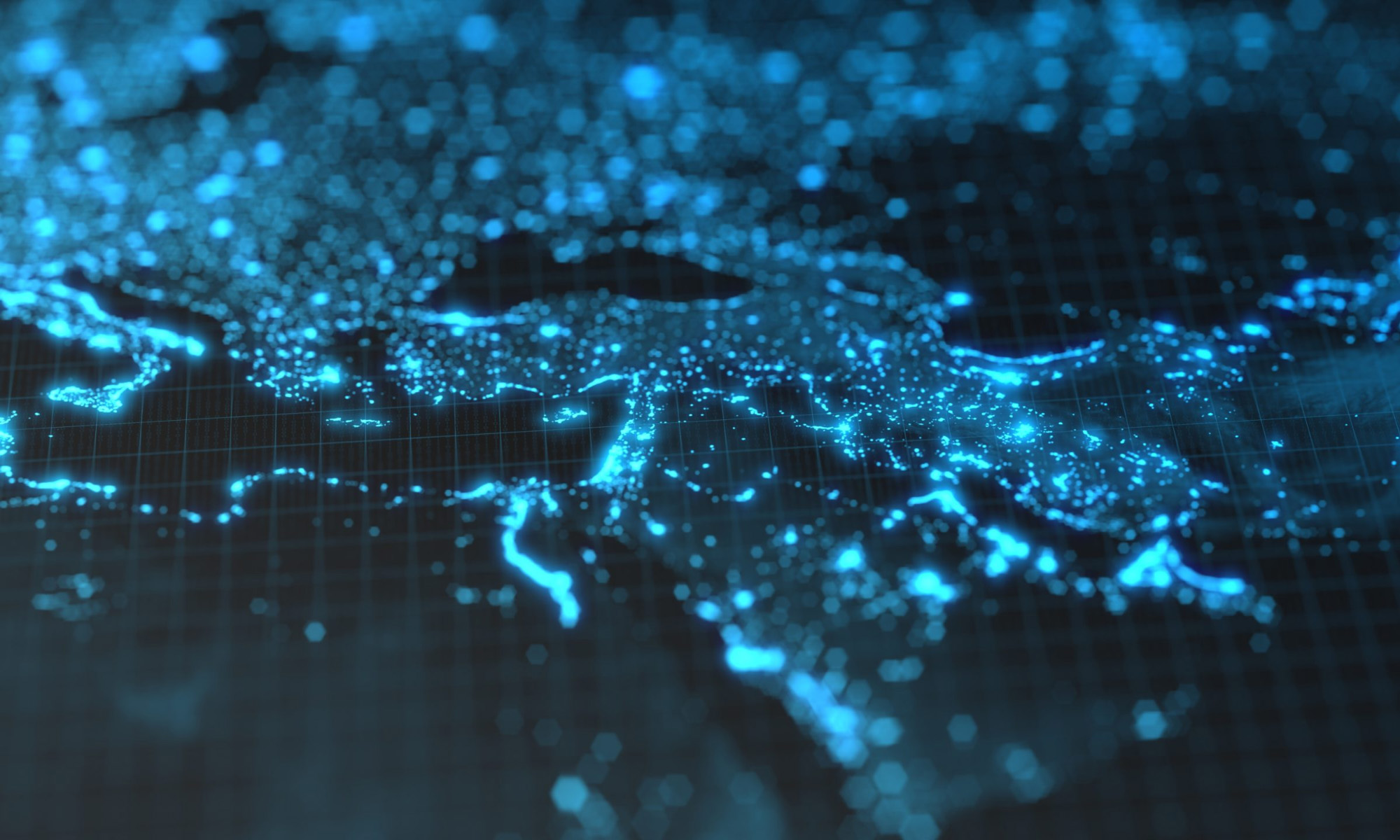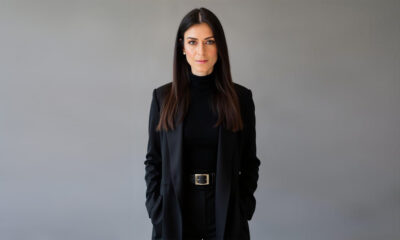News
ChatGPT Is Accelerating The AI Revolution In The Middle East
Discover how ChatGPT, an advanced AI language model developed by OpenAI, is accelerating the AI revolution in the Middle East.

ChatGPT, an advanced artificial intelligence (AI) large language model developed by San Francisco-based OpenAI, has been dominating the headlines of tech magazines since its public release in November 2022.
Many believe that the AI’s uncanny ability to understand and generate human-like text has the potential to completely transform how we interact with the digital world and, as a result, usher in an era of unprecedented innovation and progress.
The vision of a future transformed by an AI may still seem somewhat distant and hazy, but it’s the exact future Saudi Arabia’s Vision 2030 reform plan and Egypt’s and Turkey’s national AI strategies want to create.
Now, with the world’s most advanced AI in the world gaining traction in the region, the AI revolution that has been the topic of countless conversations and proposals is accelerating at an unprecedented rate, with ChatGPT at the helm.
Artificial Intelligence Is The Future Of The Middle East
In recent years, the Middle East has seen an increasing interest in the adoption of AI technologies to revolutionize various sectors, foster economic growth, and drive innovation. With national strategies and ambitious goals in place, many countries are actively working towards embracing AI as a cornerstone of their future development.
Already, AI adoption in the Middle East spans various industries, with the financial sector being a leading adopter. For example, in 2016, Emirates NBD became the first bank in the region to release its own AI-based personal banking assistant, called Eva.
In the wake of the fourth industrial revolution, governments and businesses across the Middle East are beginning to realize the shift globally towards AI and advanced technologies.
Source: PwC
Other sectors actively incorporating AI in the region include healthcare (AI-powered diagnostics tools), education (intelligent tutoring systems), manufacturing (optimized and automated manufacturing processes), and public services (better decision-making and streamlined administrative tasks), among others.
According to PwC, AI has the potential to contribute up to US$320 billion to the Middle East economy by 2030, equivalent to 11% of the region’s GDP. This highlights the immense potential of AI in driving economic prosperity in the region and freeing it from its dependence on oil exports.
Will ChatGPT Be The Spark That Catalyzes An AI-Driven Economic Boom?
Artificial intelligence has been playing a major role in the lives of most people for several years now. It enables Face ID to recognize human faces, makes Google Search more accurate, and enhances the quality of smartphone photos and videos, just to give a few examples.
What these and most other examples of AI technology being put to practical use have in common is that they perform very specific tasks and do so without drawing attention to themselves.
ChatGPT is different. As a large language model, it generates text by iteratively posing the question, “Based on the current text, what should the next word be?” If you ask it, “What is the capital of Lebanon?” it will happily answer, “The capital of Lebanon is Beirut.” Remarkably, ChatGPT doesn’t retrieve this information from Wikipedia or some other source.
Instead, the AI and its approximately 1 trillion parameters were trained on a massive set of data obtained from books, the web, scientific articles, and other materials. All this training and subsequent fine-tuning have allowed ChatGPT to handle a wide range of tasks, such as answering complex questions, translating text between different languages, describing online memes, taking difficult law exams, or programming software applications.
Recently, ChatGPT has gained plugin support, so it can now browse the web, provide restaurant recommendations, do math, interact with over 5,000+ apps through Zapier, and much more.
Though not a perfect analogy, plugins can be “eyes and ears” for language models, giving them access to information that is too recent, too personal, or too specific to be included in the training data.
Source: OpenAI
Because of ChatGPT’s unprecedented and rapidly growing capabilities, researchers are now debating whether it could be classified as an early example of artificial general intelligence (AGI), an AI system capable of performing any intellectual task that a human can. Regardless of whether it can or cannot be classified as an AGI, ChatGPT is already making waves in the Middle East.
His Highness Sheikh Mohammed bin Rashid Al Maktoum, Vice-President and Prime Minister of the UAE and Ruler of Dubai, has asked the authorities to do a study on ChatGPT and how the government can use the technology safely in education, health, and other industries.
The UAE’s AI minister, Omar Sultan Al Olama, has also spoken about the success of ChatGPT, saying that its level of output and engagement is beyond what many AI experts would have predicted just six months ago.
Yanzo, a text-based personal assistant that operates on WhatsApp, has recently become one of the first companies to supercharge their product with ChatGPT. Yanzo was initially considering IBM’s Watson and Netomi, but the moment ChatGPT came out, Mohammed Jaffar, the company’s co-founder and CEO, knew what the right decision was. Now, ChatGPT is the first in line to respond to user requests.
Yanzo provided 33,000 conversations, and after two weeks, the AI had learned its way of dealing with customer requests.
Source: Wamda
However, as with any disruptive technology, there are also concerns about the potential risks and challenges associated with AI. According to OpenAI, around 80% of workers could see their jobs impacted by ChatGPT. The most exposed occupations include mathematicians, tax preparers, financial analysts, writers, and web designers, but virtually all white-collar jobs exhibit some degree of exposure to AI.
There’s also the very important question of privacy and security. For large language models like ChatGPT to function effectively and serve various personal and business use cases, they need access to vast amounts of data, including personal information. This raises concerns about how this data is being collected, stored, and used, as well as who has access to it. Recently, it took just one bug in an open-source library for ChatGPT users to see other users’ chat histories.
Last but not least, readily accessible AIs like ChatGPT could be used to spread dangerous misinformation, propaganda, and hate speech. Therefore, it is crucial that businesses, governments, and civil society work together to ensure that AI systems are being used ethically and responsibly. After all, the real goal of the AI revolution in the Middle East should be to enhance people’s lives — not replace people with machines.
Conclusion
In the coming years, we are likely to see ChatGPT and other similar AI tools play an increasingly important role in transforming industries, driving innovation, and fostering economic growth in the Middle East. With the potential to automate routine tasks, improve decision-making, and provide personalized services at scale, AI is poised to revolutionize virtually all sectors. But with this potential also comes great responsibility, and all stakeholders in the AI ecosystem need to work together to ensure the world-changing technology benefits, not just a select few but the entire Middle East.
News
Alienware Just Announced Six New Gaming Monitors
The new models include three QD-OLED and three budget-friendly QHD options, expanding the company’s lineup for all gamers.

Alienware has just updated its gaming monitor lineup with six new additions, including the highly anticipated Alienware 27 4K QD-OLED Monitor. The latest wave of releases is set to reach more gamers than ever, offering high-end QD-OLED displays alongside more budget-friendly options.
The latest displays clearly show that the company is doubling down on QD-OLED with three new models sporting the technology. A redesigned Alienware 34 Ultra-Wide QD-OLED Monitor is also making a return, further refining what is already a fan-favorite display.
A Unified Design: The AW30 Aesthetic
All six monitors feature Alienware’s new AW30 design language, first introduced at CES. The AW30 aesthetic brings a futuristic, minimalist look that unites the entire lineup under a cohesive visual identity.
Pushing QD-OLED Even Further
The refreshed Alienware 34 Ultra-Wide QD-OLED Monitor (AW3425DW) builds on its predecessor’s success with a 240Hz refresh rate (up from 175Hz) and HDMI 2.1 FRL support. It also gains G-SYNC Compatible certification alongside AMD FreeSync Premium Pro and VESA AdaptiveSync, ensuring ultra-smooth performance. With a WQHD (3440×1440) resolution and an 1800R curve, this display enhances immersion for both gaming and cinematic experiences.
For those who crave speed, the Alienware 27 280Hz QD-OLED Monitor (AW2725D) pairs a high refresh rate with QHD resolution, balancing sharp visuals with ultra-smooth gameplay. Meanwhile, the Alienware 27 4K QD-OLED Monitor (AW2725Q) delivers stunning clarity with an industry-leading pixel density of 166 PPI, making it the sharpest OLED or QD-OLED monitor available.
Also Read: Infinite Reality Acquires Napster In $207 Million Deal
Worried about OLED burn-in? Alienware’s entire QD-OLED lineup comes with a three-year limited warranty covering burn-in concerns, offering peace of mind for gamers investing in these high-end displays.
Bringing QHD To A Wider Audience
Alongside QD-OLED, Alienware is also releasing three new QHD gaming monitors aimed at more price-conscious gamers. The Alienware 34 Gaming Monitor (AW3425DWM), Alienware 32 Gaming Monitor (AW3225DM), and Alienware 27 Gaming Monitor (AW2725DM) provide a range of sizes and formats to suit different preferences:
- The Alienware 34 Gaming Monitor (AW3425DWM): An ultrawide (WQHD) option for a panoramic, immersive experience.
- The Alienware 32 Gaming Monitor (AW3225DM): A standard 16:9 panel for a traditional but expansive desktop setup.
- The Alienware 27 Gaming Monitor (AW2725DM): A 27” display offering the same performance in a more compact form factor.
All three gaming monitors feature a fast 180 Hz refresh rate, a 1ms gray-to-gray response time, and support for NVIDIA G-SYNC, AMD FreeSync, and VESA AdaptiveSync to eliminate screen tearing. Additionally, with 95% DCI-P3 color coverage and VESA DisplayHDR400 certification, these displays deliver vibrant colors and high dynamic range for lifelike visuals.


























Sabrine Hijazi
March 25, 2023 at 10:28 AM
I absolutely agree that AI is going to change the MENA region for the better! Very informative article.